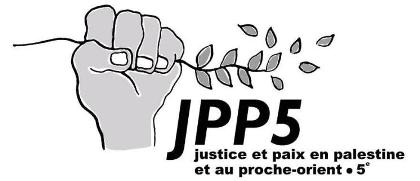
Titled "Illegal Israeli Settlements: Obstacles to Peace and the Two-State Solution," the meeting was classified as an ‘Arria-Formula,’ which according to the UNSC, are informal gatherings which enable Security Council members to discuss “frankly” the topic at hand, and hear from guests whom the council deems would be beneficial to listen to.
The meeting was pushed by the Palestinian delegation to the UN --which earlier this year shelved anti-settlement legislation amidst French-led peace negotiations -- and was officially convened by member states Egypt, Venezuela, Malaysia, Senegal and Angola.
Among those presenting on the issue were Hagai El-Ad, the executive director of B’Tselem, an Israeli organization that monitors human rights abuses in the occupied Palestinian territory, and Lara Friedman, director of policy and government relations at the Americans for Peace Now, the sister organization of the Israeli human rights NGO.
In her remarks, Friedman acknowledged the existence of entire system within the Israeli government, and outside of it, dedicated to constructing new settlements and expanding existing ones.
She noted the dramatic growth in the number of Israeli settlers over the past 20 years, highlighting that under the leadership of Prime Minister Benjamin Netanyahu, between 2009 and 2015, the Israeli government promoted the construction of 11,000 new settlement housing units, in contravention with international law.
El-Ad mimicked the sentiments of Friedman, detailing the structures put in place by the Israeli government that helps Israeli settlers and right wing groups confiscate Palestinian land for settlement use.
“Israel has systematically legalized human rights violations in the occupied territories through the establishment of permanent settlements, punitive home demolitions, a biased building and planning mechanism, taking over Palestinian land and much, much more,” El-Ad said.
El-Ad expressed his outrage at the near half-century long occupation of the Palestinian territory, adding that 2016 was the worst year on record, according to B’Tselem, for Israeli demolitions of Palestinian homes in the occupied West Bank and East Jerusalem.
Among the tactics that Israel uses to confiscate occupied Palestinian land, El-Ad highlighted a few, such as the fact that Israel has declared 20 percent of the occupied West Bank as “State Land” meaning Palestinians cannot build on or farm that land, that Israel has “generously” allowed Palestinians to build on only one-half of one percent of ‘Area C’ -- the 60 percent of the West Bank “temporarily” placed under full Israeli security and civilian control after the Oslo Accords -- that over the past decade, Israel has demolished some 1,200 Palestinian homes in the West Bank, excluding occupied East Jerusalem, “thereby rendering homeless over 5,500 people, half of them minors.”
“East Jerusalem figures would raise these by roughly another 50 percent,” El-Ad said.
El-Ad criticized what he said was Israel’s manipulation of the decades long peace process, saying the country has used as a guise to continue implementing such policies that violate international law, without any repercussions from the international community.
Among the member states who responded and made remarks during the meeting, were Britain and France, whose ambassador’s condemned both Israeli settlement expansion in the occupied West Bank, as well as a year long wave of violence characterized by small-scale attacks with knives or similar weapons.
The British ambassador added that Israeli settlement expansion was “an obstacle to peace” and undermined the establishment of a sustainable Palestinian state.
The meeting came a week after the United States and the European Union issued statements condemning Israel’s plans to construct 98 new housing units in the northern West Bank for the establishment of a new Israeli settlement.
Last month, the Higher Planning Committee (HPC) of Israel’s Civil Administration approved for “deposition” -- the planning phase prior to final approval -- a plan for 98 housing units for a new settlement to be located east of the already established settlement of Shiloh, on lands of the Palestinian village of Jalud in the northern West Bank district of Nablus. It is part of a larger plan for 300 units yet to be promoted.
Meanwhile in April, Palestinian residents of Jalud reported that Israeli authorities delivered notices alerting them that 5,000 dunams (1,250 acres) of private land were slated for confiscation.
The EU spokesperson emphasized that the new settlement units represented the “accelerating trend of new settlement announcements since the start of 2016,” adding that the move has threatened to further separate the West Bank districts of Ramallah and Nablus while disrupting any possibility of a contiguous Palestinian state.
“The retroactive authorization of nearby illegal outposts or redrawing of local settlement boundaries contradicts previous public statements by the government of Israel that it had no intention of creating new settlements,” the statement said.
“The decision to continue settlement building and expansion goes directly against the recommendations of the Quartet Report, weakens rather than strengthens the prospects for a two-state solution to the Middle East peace process, and makes the possibility of a viable Palestinian state more remote.”
The US has condemned Israel’s settlement expansions in the past, but the government has yet to take any concrete actions to end settlement building in the Palestinian territory. Critics have claimed that instead the US has inadvertently encouraged Israel’s settlement enterprise through its consistent inaction over Israel’s violation of international law and its continued support of the Israeli government through inflated military aid packages.
There are an estimated 500,000 to 600,000 Israeli settlers residing in 196 illegal Israeli settlements in the occupied West Bank and occupied East Jerusalem, and a further 232 settler outposts considered illegal both by international law and Israeli domestic law, according to the Applied Research Institute - Jerusalem (ARIJ).
While members of the international community have rested the solution to the Israeli-Palestinian conflict on the discontinuation of illegal Israeli settlements and the establishment of a two-state solution, Israeli leaders have instead shifted further to the right.
A number of Palestinian activists have criticized the two-state solution as unsustainable and unlikely to bring durable peace, proposing instead a binational state with equal rights for Israelis and Palestinians.



